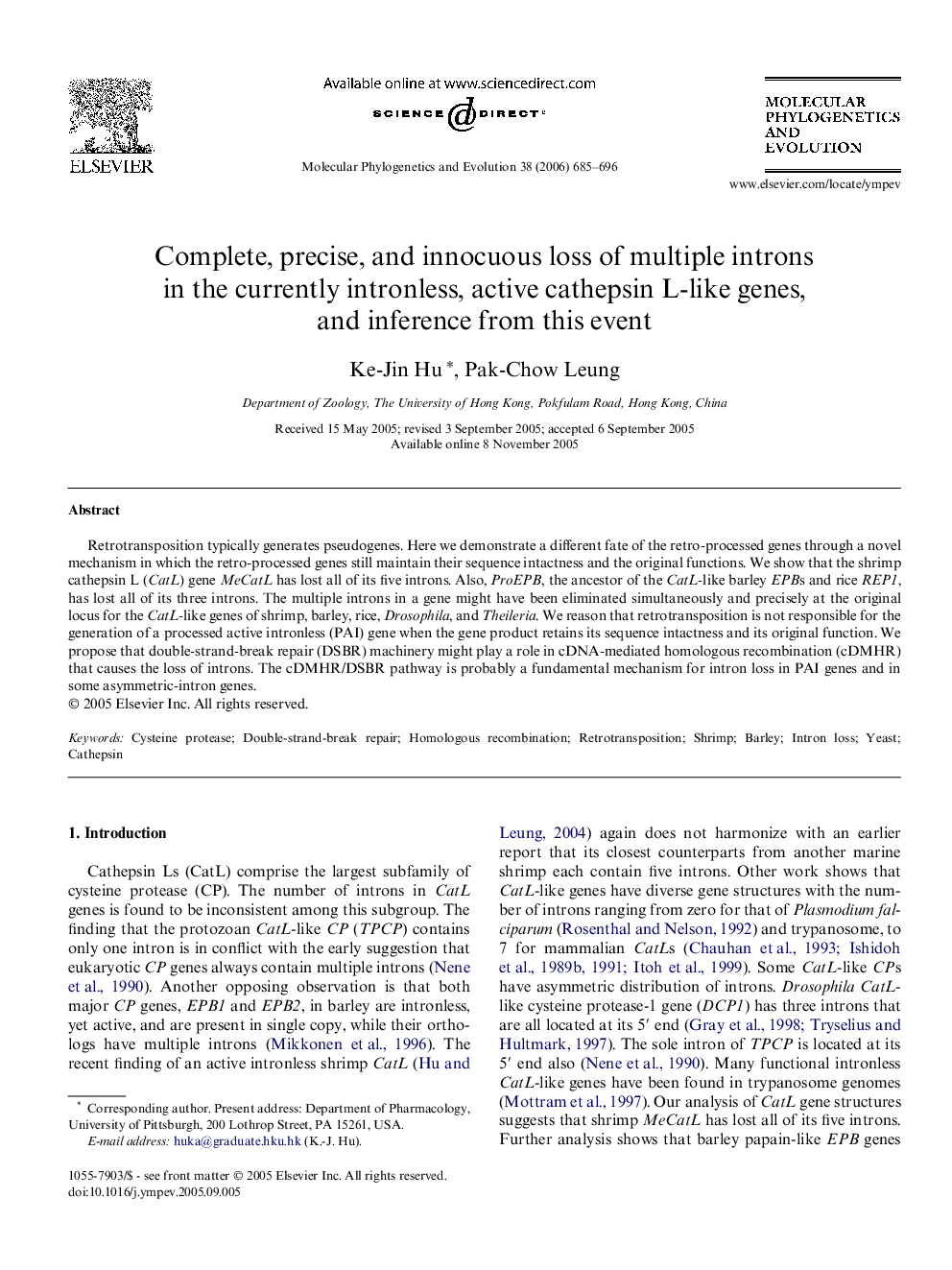| Article ID | Journal | Published Year | Pages | File Type |
|---|---|---|---|---|
| 2836091 | Molecular Phylogenetics and Evolution | 2006 | 12 Pages |
Retrotransposition typically generates pseudogenes. Here we demonstrate a different fate of the retro-processed genes through a novel mechanism in which the retro-processed genes still maintain their sequence intactness and the original functions. We show that the shrimp cathepsin L (CatL) gene MeCatL has lost all of its five introns. Also, ProEPB, the ancestor of the CatL-like barley EPBs and rice REP1, has lost all of its three introns. The multiple introns in a gene might have been eliminated simultaneously and precisely at the original locus for the CatL-like genes of shrimp, barley, rice, Drosophila, and Theileria. We reason that retrotransposition is not responsible for the generation of a processed active intronless (PAI) gene when the gene product retains its sequence intactness and its original function. We propose that double-strand-break repair (DSBR) machinery might play a role in cDNA-mediated homologous recombination (cDMHR) that causes the loss of introns. The cDMHR/DSBR pathway is probably a fundamental mechanism for intron loss in PAI genes and in some asymmetric-intron genes.
